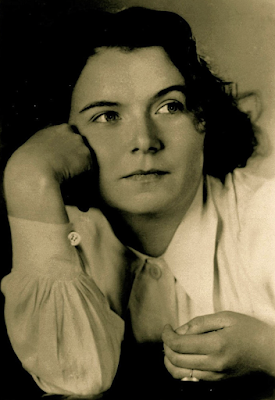Celebrating famous female cannabis connoisseurs throughout herstory to the present day. All contents copyrighted. "Bright Leaf" artwork by Jean Hanamoto, camomoto at Spoonflower.com
Saturday, April 1, 2023
Tokin' Women and Others We Lost in March 2023
Sunday, March 12, 2023
More US Women Are Smoking Weed But They're Still Reluctant to Admit It
 The top three reasons women said they use cannabis are to relieve anxiety (60%), to help them sleep (58%), and to relieve pain (53%). It's possible women still don't want to admit that they use cannabis recreationally.
The top three reasons women said they use cannabis are to relieve anxiety (60%), to help them sleep (58%), and to relieve pain (53%). It's possible women still don't want to admit that they use cannabis recreationally.Friday, March 10, 2023
RIP Raphael Mechoulam, Discoverer of THC
Thursday, March 2, 2023
Women's History Month: Celebrating Tokin' Women Who Tell Our Stories
Maya Angelou, the first poet since Robert Frost to read a poem at a Presidential inauguration, wrote about her experiences with marijuana in Gather Together in My Name, the second installment of her autobiography after the acclaimed I Know Why the Caged Bird Sings. She recounted that after smoking grifa, "I lost myself in a haze of sensual pleasure....The shapes and forms melted until I felt I was in a charcoal sketch, or a sepia watercolor."
Playwright and author Lillian Hellman was reportedly a bit of a cougar in her later years, enjoying the company of young single men in New York in the mid-1970s "with a leaning towards the sort of outrageousness that produced the hearty Hellman belly laugh," sometimes induced by smoking marijuana. "Lil said she used mj when she was around people who used it. As in 'Whenever I'd be at a dinner with Gene Krupa...'" said journalist/activist Fred Gardner, who used to supply her in the 60s.
Gertrude Stein co-hostessed a salon in Paris that fostered artists like Picasso. She also was a stream-of-consciousness writer who wrote "The Autobiography of Alice B. Toklas" about her longtime lover, whose cookbook features a recipe for hashish fudge, "which anyone could whip up on a rainy day." An interesting character by the name of Jenny Reefer appears in "The Mother of Us All," a 1947 opera about the life and career of suffragette Susan B. Anthony for which Stein wrote the libretto.
 |
| A disc depicting Enheduanna (second from left) overseeing a ceremony. |
Wednesday, March 1, 2023
Tokin' Women and Others We Lost in February 2023

Monday, February 27, 2023
No, Woody Harrelson Didn't Say He Gave Up Smoking Pot on SNL
Sunday, February 19, 2023
President Jimmy Carter, Marijuana Decriminalization Advocate
The first president I got to vote for, after campaigning against Richard Nixon four years earlier at the age of 14, was Jimmy Carter. It's been announced that the 98-year-old Carter is in hospice, to spend his final days at home.














